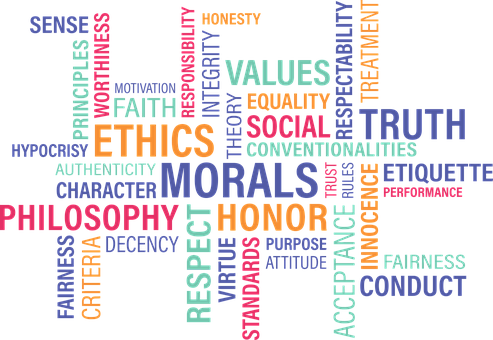You’re thinking of buying a tractor. Of course, as a rational business owner you think that you will evaluate your decision in a rational way. For years management theory assumed that a business person would use a rational decisionmaking model. That model establishes that you will make a decision based on a logical, sensible choice, often following a step-by-step process.
Usually the pros and cons of a choice are ranked or scored with the highest scoring option being “the best” option. However, new discoveries have been made regarding the functioning of the brain, and as Antonio Damasio, a brilliant neuroscientist has said, “A rational decision is an impossible one.” Emotions are the first pathway. They influence every decision. And values are closely linked to them. Let’s go back to that tractor. Will you choose the most comfortable one or the most luxurious one, the cheaper one, the one with the best warranty or the one that carries the most prestige? You will feel good, attracted to and positive toward some of the choices you face and will thereby be motivated “toward” those choices. You will also experience unpleasant, indifferent or even disgusted feelings and so be motivated “away” from other choices. Your values will influence your decisions, but to what extent are you aware of those values? One of the primary emotional strengths related to emotional intelligence is to know yourself, which starts by knowing your values. A value is what is true, beautiful and good, based on personal or social criteria, and that is used as a reference or moral principle. Your values affect your choices, your actions, and your level of satisfaction in life.
They will very much determine your goals and outcomes in life. Indeed, when you feel that your lifestyle is in line with your values, you feel more in harmony. Finally, your values will determine how you perceive and interpret any particular situation. These are important references in your personal, professional and business life. A value is said to be 10 to 100 times more important in life than a gift, a talent or a quality. In my practice I often notice conflicts and “wrong matches” among associates because of major differences in values. Your character and competencies can be very different from those of your associates and yet you still work well together. However, having different values than your associates can be a source of many conflicts. You will not compromise on values or if you will, you will be unhappy. If your central values involve “family, a balanced lifestyle, charity, health, and harmony” while the values of your associate are more along the lines of “recognition, prestige, power, money and competition,” then it is very unlikely that his choices and yours will be the same.
When we are faced with a dilemma or with an internal conflict because of a decision we have to make, it means that one or more values that are important to us are conflicting. We make difficult choices based on a hierarchy of values. However, over the years, this hierarchy could change gradually, or it could change suddenly because of a tragic event such as a death, an accident, bankruptcy or divorce. To quickly discover your values or those of others, note the following three questions:
1. Where do you invest your money?
Example: Do you find that fresh fruit and vegetables are always too expensive (health), but you drive a luxury car (comfort, prestige, recognition) or do you prefer to forego renovations in your house (comfort, aestheticism, prestige) in order to invest in your childrens’ schooling (education)?
2. Where do you allocate your energy?
Do you have time to sit on four different committees (social involvement or recognition), but never enough to work out (health) or to spend time with your family (family)? There are 24 hours in a day, and the way you spend your time is based on what you value the most.
3. What do you like to talk about?
Do you always spend time talking about your business, the selection of a replacement bull, or ways to increase production (efficiency, recognition, achievement) or do you prefer to talk about your children and their projects (family, children)? Each decision that we make, or do not make, speaks to our values. To find out what your values are, consider these questions:
• What makes you the happiest?
• What offends you or frustrates you the most?
• What are the criteria on which you most often base your daily decisions?
• If you could change the past, what would you change? Think of yourself at age 80 and ask yourself:
• What will be my biggest regrets when I look back on my life?
• Which achievements will I be the most proud of? All of your answers reflect your values. If you are dissatisfied with your answers, or results that you get in life, it may be time for you to reconsider what truly matters to you.
Pierrette Desrosiers is a work psychologist, professional speaker, coach and author who specializes in the agricultural industry. She comes from a family of farmers and she and her husband have farmed for more than 30 years. (www.pierrettedesrosiers.com)
Email: pierrette@pierrettedesrosiers


